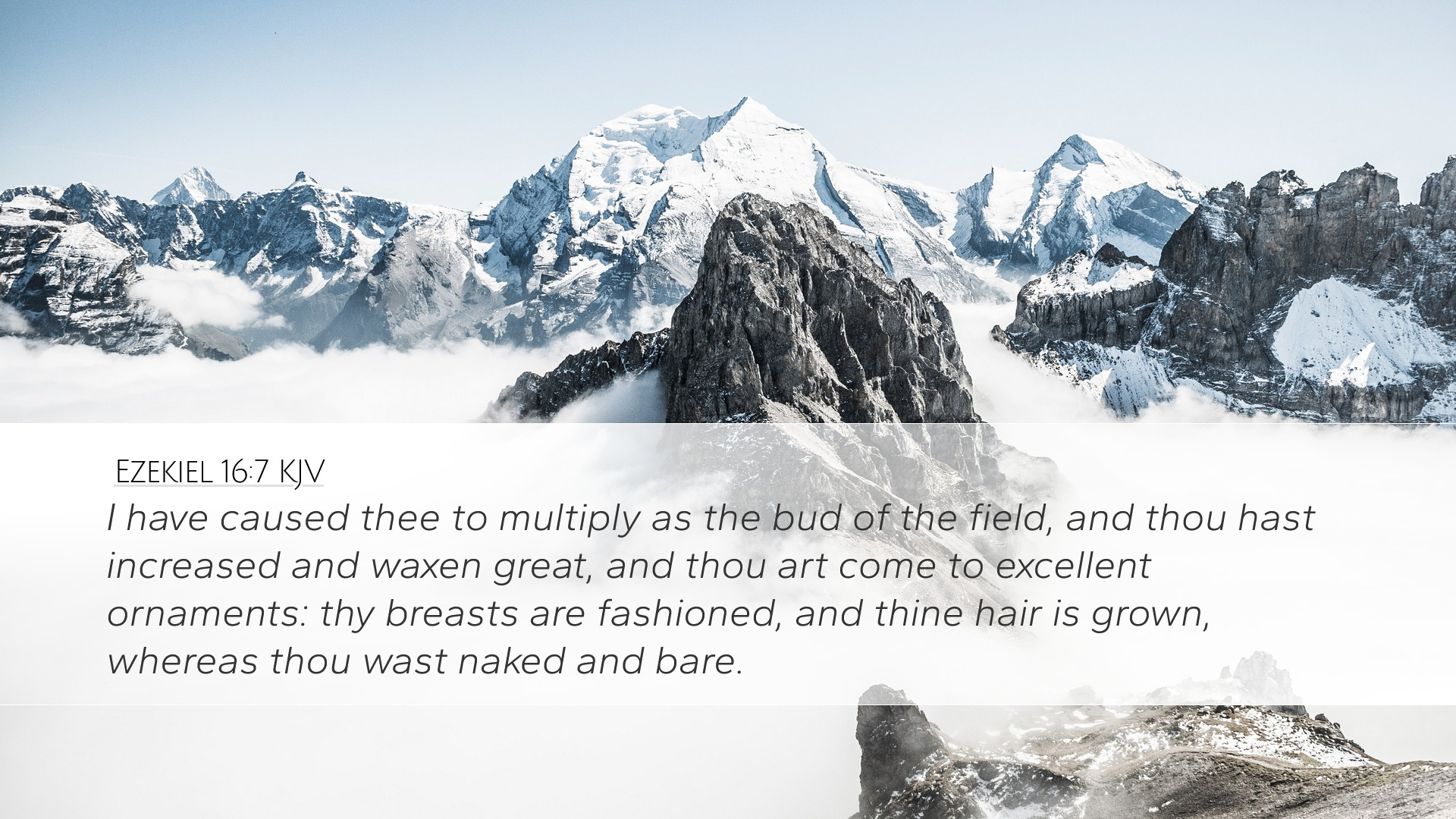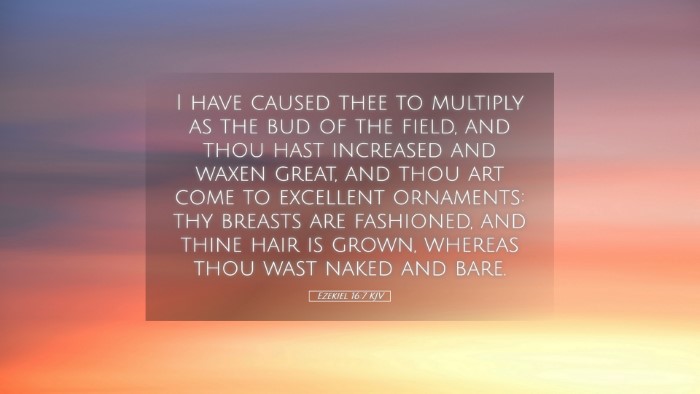Ezekiel 16:7 Commentary
Bible Verse: "I have caused thee to multiply as the bud of the field; and thou hast increased and waxen great, and thou art come to excellent ornaments: thy breasts are fashioned, and thine hair is grown, whereas thou wast naked and bare."
Overview
The verse in Ezekiel 16:7 represents a profound metaphor of God's nurturing and covenantal relationship with Israel. It describes the transformation from vulnerability to a state of beauty and maturity. Through this commentary, we will explore various dimensions of this verse, drawing from public domain sources such as Matthew Henry, Albert Barnes, and Adam Clarke.
Exegesis and Meaning
The language used in Ezekiel 16:7 is poetic and rich with imagery. It reflects the journey of God's chosen people from a state of dependence and exposure into one of growth and splendor. The reference to Israel's transformation emphasizes God's role as a redeemer and nurturer.
God as the Nurturer
Matthew Henry's Analysis: Henry interprets the metaphor of the "bud of the field" as indicative of God’s providential care. God actively caused Israel's growth, suggesting a divine initiative that goes beyond mere allowance; it is an engagement that leads to flourishing.
Growth and Maturity
Albert Barnes's Insight: Barnes emphasizes the phrase "increase and waxen great" as a reflection of both numerical growth and spiritual maturity. Here, the idea of spiritual adornment emerges, as Israel moves from a state of being "naked and bare" to one adorned with gifts and graces from God.
The Transition from Vulnerability to Strength
Adam Clarke's Perspective: Clarke notes that God's description of Israel shifts from helplessness to empowerment. The mention of "breasts fashioned" and "hair grown" symbolizes both physical maturity and the blessings of God that equip the nation to fulfill its divine purpose.
Theological Implications
This verse presents several theological themes relevant to pastoral and scholarly reflection:
- Covenantal Relationship: The imagery of being nurtured conveys God's commitment to His people, highlighting the intimate relationship between God and Israel.
- Grace and Redemption: The transformation from "naked and bare" to being adorned signifies grace, showing that God not only sees our weaknesses but also our potential.
- Transformation and Identity: The maturity described reflects a deeper identity formed in God’s love and care; thus, believers today can draw parallels with their own spiritual journeys.
Application for Today
For pastors and theologians, Ezekiel 16:7 provides a rich source for sermon development and theological reflection:
1. Reflecting God’s Care in Ministry
As church leaders, there’s a call to model God's nurturing behavior towards congregants. Just as God patiently cultivates growth, so must we strive to create environments for flourishing in our communities.
2. Emphasizing Spiritual Growth
The transformation from vulnerability to beauty serves as a reminder that spiritual maturity is a process. Encouraging congregants to engage with scripture and community can lead to significant growth in faith and understanding.
3. Acknowledging Transformation
This passage also lifts up the power of God’s grace that brings transformation. It can be helpful for ministry to celebrate stories of change and growth within the community, reflecting the nurturing aspect of God’s relationship with His people.
Conclusion
Ezekiel 16:7 provides deep insights into the nature of God's relationship with Israel, revealing themes of nurture, growth, and beauty. For believers, it serves as an affirmation of being chosen and cared for, pointing toward a larger narrative of redemption. By applying these insights, pastors and scholars can encourage a deeper understanding of divine care and transformation within their congregations.


